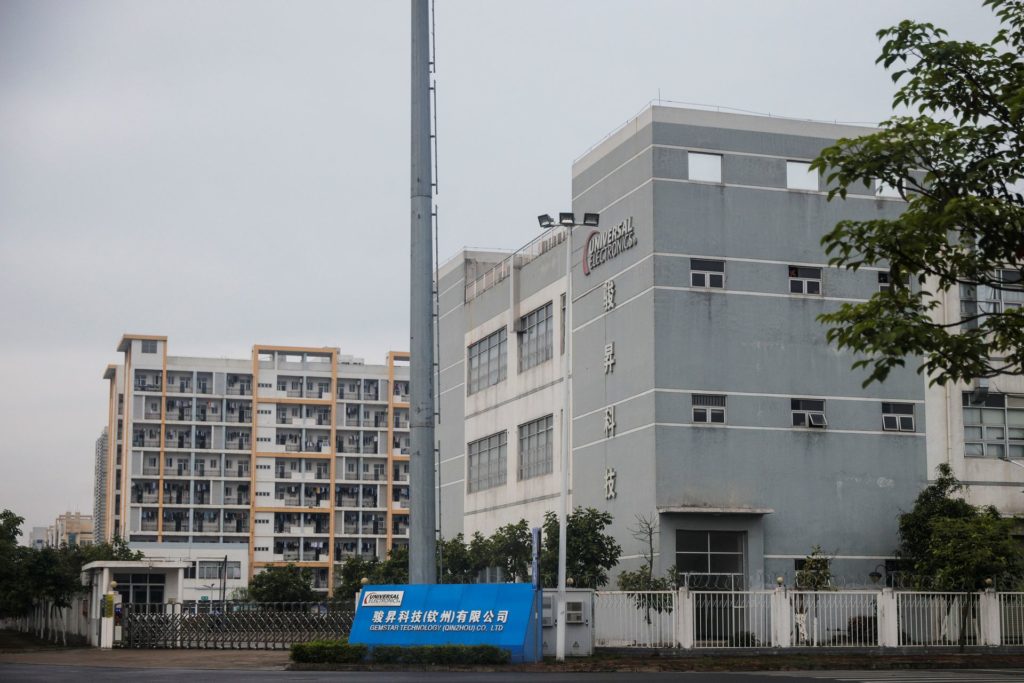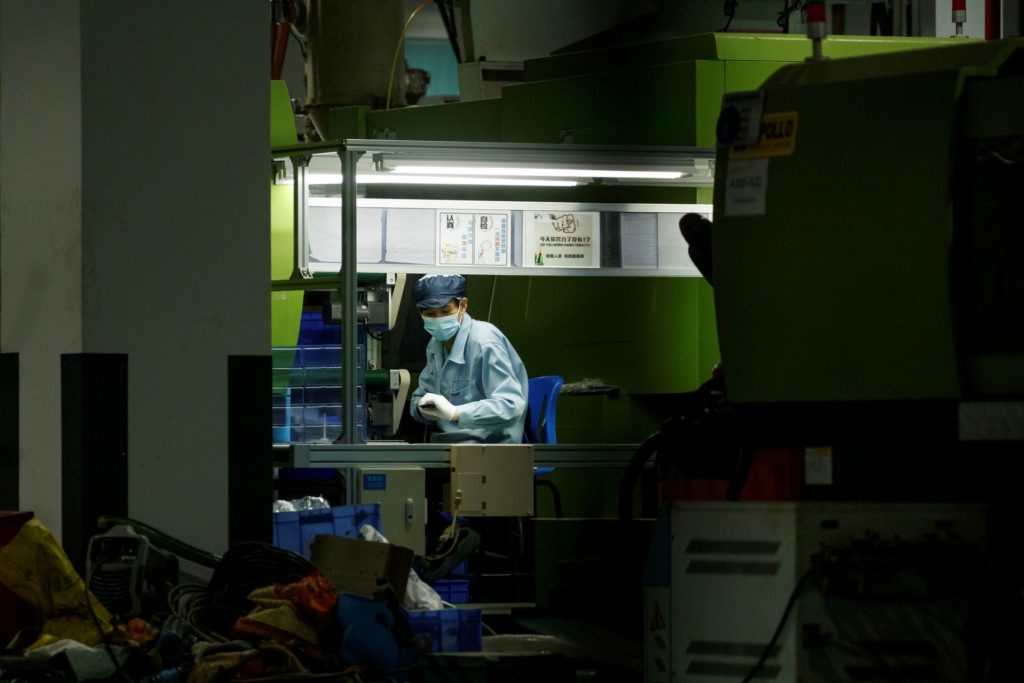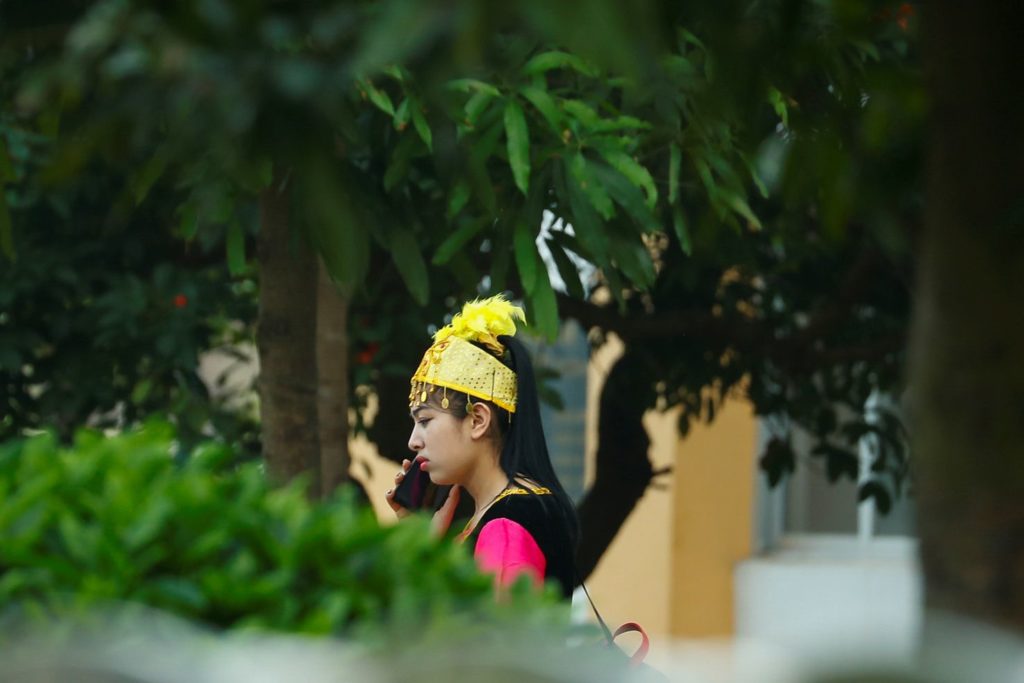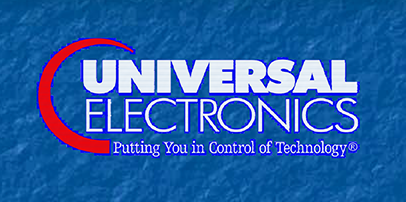Allegations of Conspiring With China’s Gov’t to Use Uyghurs in a Forced Labor Arrangement
In a rare show of bipartisanship, a group of U.S. Senators has sent a strongly worded letter to a leading consumer electronics industry remote control maker Universal Electronics, Inc. (UEI) launching a probe into the company’s hiring practices in China. Unique to UEI is that they own their own factories in China (most contract with existing China OEM factories) and a recent damning investigation by Reuters alleges the company is working with the Chinese government to utilize a widely persecuted Uyghur minority in a forced labor arrangement, a human rights violation. UEI has denied the accusation but so far has not provided data to back up their denial.
See more on the UEI labor situation in China
Most companies dream of the day when they open a local newspaper or turn on the TV, and there in all their glory is a story in the national or international media about your company. Unfortunately for Universal Electronics, that dream is turning out to be more of a nightmare. All hell broke loose earlier this month when an alarming and damning investigation by global news powerhouse Reuters accused UEI of working with the Chinese government to transport in hundreds of Uyghurs – an ethnic minority in China that according to multiple reports and many in the U.S. government are subjected to pernicious discrimination and abuse by Chinese authorities – and force them to work in UEI factories.
These human rights abuses have brought international condemnation of China’s government. Lawmakers here in the U.S. have implemented various rules, regulations, and laws governing any interaction or participation by U.S. businesses – well aware of how many companies work with Chinese companies or have subsidiaries in China.
Reuters Investigative Report Draws Letter from U.S. Senate
It was this report by Reuters that motivated Senators Robert Menendez (D-NJ), Marco Rubio (R-FL), and Jeffrey A. Merkley (D-OR) to send Paul Arling, CEO of Universal Electronics, a letter revealing their probe and demanding more information from the company. It is the kind of letter that most companies would never want to receive.
The letter from the Senators starts, “We write regarding disturbing reports of forced labor in Universal Electronics facilities.” How’s that for an opening sentence? The letter goes on further, quoting from a State Department “2021 Trafficking in Persons Report” which stated “‘…in Xinjiang, the government is the trafficker. Authorities use threats of physical violence, forcible drug intake, physical and sexual abuse, and torture to force detainees to work in adjacent or off-site factories or worksites,’ including consumer electronics factories.”
The State Department further stated that in recent years, ‘the government also began transferring many thousands of [internment] camp detainees elsewhere in Xinjiang and to other provinces throughout the country under the guise of a ‘poverty alleviation’ program in which companies and local governments received subsidies for forcing them to labor in manufacturing.'”
Arling letter

A Stern Warning
The letter was direct and a stern warning, not just for UEI, but for all U.S. companies, including consumer electronics companies. “Given these ongoing, well-documented abuses, American companies must scrupulously avoid forced Uyghur labor in their Chinese operations, including by carefully vetting arrangements with third-party labor agents. The new reports indicate Universal Electronics may be failing in this duty. We understand the Uyghurs employed in your Qinzhou facility live in segregated dormitories, are continuously surveilled by police, and are made to participate in government ‘education activities.'”
How did UEI end up in this mess? Well, by the looks of the Reuters investigation, they ended up here either by design, or ignorance. In a report titled, “EXCLUSIVE US Electronics Firm Struck Deal to Transport and Hire Uyghur Workers,” Reuters offers shocking evidence of the company deliberately participating in a government program of forced labor by the Uyghurs.
U.S. remote-control maker Universal Electronics Inc. told Reuters it struck a deal with authorities in Xianjiang to transport hundreds of Uyghur workers to its plant in the southern Chinese city of Qinzhou, the first confirmed instance of an American company participating in a transfer program described by some rights groups as forced labor.
The Nasdaq-listed firm, which has sold its equiment and software to Sony, Samsung, LG, Microsoft and other tech and broadcast companies, has employed at least 400 Uyghur workers from the far-western region of Xinjiang as part of an ongoing worker-transfer agreement, according to the company and local officials in Qinzhou and Xinjiang, government notices and local state media.”
Reuters article, October 8, EXCLUSIVE US Electronics Firm Struck Deal to Transport and Hire Uyghur Workers
Major Customers Sony, Samsung & More Put on Alert
Notice how Sony, Samsung, LG, and Microsoft have all been tied into the story – potentially a major problem for UEI as these are all large and important customers for them. And all of them are intensely focused on their public brand reputations.
The Reuters investigation goes on to note that: “Xinjiang authorities paid for a charter flight that delivered the Uyghur workers under police escort from Xinjiang’s Hotan city – where the workers are from – to the UEI plant, according to officials in Qinzhou and Hotan interviewed by Reuters.” The deeply researched report cites multiple sources and Reuters even committed “boots on the ground” with multiple reporters there who even gained access to the UEI factory where they saw women dressed in traditional Uyghur clothing on the factory compound.

What was UEI’s Response to the Allegations?
How did UEI respond to these damning allegations of human rights violations at their factories? Unfortunately, not in any satisfying manner, “…a UEI spokeswoman said the company currently employs 365 Uyghur workers at the Qinzhou plant. It said it treated them the same as other workers in China and said it did not regard any of its employees as forced labor.”
Reuters went to top UEI customers for comment on the situation. Sony refused to specifically comment on UEI, but offered a statement of its general position with suppliers.
In a statement to Reuters, [Sony] said if any supplier is confirmed to have committed a major violation of its code of conduct, which prohibits the use of forced labor, then ‘Sony will take appropriate countermeasures including request for implementing corrective actions and termination of business with such supplier.'”
Major Customers Say, If True, They’ll Terminate Relationship
In the case of Microsoft, a spokesperson told Reuters “…the company takes action against any supplier that violates its code of conduct, up to termination of its business relationship…” However, they say they no longer do business with UEI.
LG had no comment and Samsung offered a partial comment – telling Reuters that “the company prohibits its suppliers from using all forms of forced labor and requires that all employment be freely chosen.” However, they told Reuters, they would not specifically address the UEI situation.
Reuters Reporters Enter UEI Factory
Reporters for Reuters were able to enter the UEI factory, however, officials would not allow the reporters to speak with workers. The reporters note that as a result, they could not confirm the workers are compelled to be working there or were there voluntarily. However, the reporters noted that the conditions they witnessed with their own eyes “…bear hallmarks of standard definitions of forced labor, such as working in isolation, under police guard and with restricted freedom of movement.”
China’s Ministry of Foreign Affairs issued a statement to Reuters saying, “This so-called ‘forced labor’ is a completely fabricated lie. Xinjiang migrant workers in other parts of China, like all workers, enjoy the right to employment in accordance with the law.”

State Department Warns Profiting from Forced Labor is a Crime
The U.S. State Department declined to comment specifically on the UEI situation, but they did say that “wittingly benefiting from forced labor in the United States was a crime under the U.S. Trafficking Victims Protection Act.”
As Reuters noted, the law the State Department is referring to “…criminalizes the act of knowingly benefiting, financially or by receiving anything of value, from participation in a venture, where the defendant knew or recklessly disregarded the fact that the venture engaged in forced labor.”
That law referenced in the statement, Reuters reported, “imposes criminal liability on individuals or entities present in the United States… even when the forced labor occurs in another country.” The State Department then referred Reuters to the Justice Department for further comment, but Justice did not respond.
UEI: We Don’t Do Due Diligence on Labor Agencies
A UEI spokesperson told Reuters that “the company does not conduct independent due diligence on where and how its workers are trained in Xinjiang. She said the arrangement is vetted by a third-party agent working with the Xinjiang government, who brokered the deal. She declined to identify that agent. Reuters could not determine if the agent is independent or works for the Xinjiang government.”
In a statement on the UEI website, titled Our Responsibility to Our Workers, UEI had this to say in part:
“Universal Electronics Inc. (UEI) has long prided itself on being a fair and equal opportunity employer, providing our employees with a work environment free of discrimination and harassment. Under no circumstances will we ever tolerate forced labor in any form or at any of our locations. We are confident that none of our workers at our facilities, including any of our China-based factories, are forced…
“…Although we have no evidence of forced labor at any of our facilities, we take all claims of forced labor very seriously. To that end we have hired a third-party law firm to conduct an audit of the practices used by the employment agency that has provided us with Uyghur workers.”
In mid-afternoon trading on Thursday, UEI stock value was down 2.25%.
You can see the entire UEI statement here…
Read the entire Reuters investigation at this link…
Read the entire letter from U.S. Senators to UEI CEO here...






I think it would be appropriate to add a disclaimer very early in the article stating the UEI is not to be confused with the similarly named URC, against whom no charges of questionable labor practices are claimed.
Hi Lewis,
Thanks for your suggestion. Actually, this is the reason why in the very first paragraph I deliberately used their full name – Universal Electronics Inc (UEI). I am hesitant to add a disclaimer where I then must name Universal Remote Control (URC), which seems like it could inadvertently introduce that name into the article and add to the confusion.
Anyway, that was my thinking.
THANKS for reading!
Ted